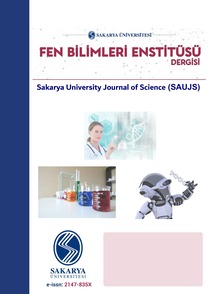Efqm Esasli Bir Karar Modeli Kullanilarak Liderlik Ve Süreçlerin Temel Performans Sonuçlarina Etkisinin Incelenmesi
Anahtar Sözcükler: EFQM Mükemmellik Modeli, öz değerlendirme, liderlik, süreçler.
An Investigation Of The Influence Of Leadership And Processes On Basic Performance Results Using A Decision Model Based On Efqm
EFQM Excellence Model, Self-assessment, Leadership, Processes.,
___
- Eğitim Kurumları İçin Toplam Kalite Yönetimi, KalDer Yayınları, İstanbul, 2002.
- SAFARI H., AJALLI M., MIRMAHALLEH S.R.S., The New Method for Ranking of Corporations Based on EFQM, Research Journal of International Studies, 20, 70-79, 2011.
- ZADE E.A., SAFARI H., ABDOLLAHI B., GHASEMI R., Canonical Correlation Analysis between Enabler and Results in EFQM Model; A Case Study in TAVANIR Company in Iran, European Journal of Social Sciences, 21(3), 483492, 2011.
- GEORGE, C., COOPER, F., DOUGLAS, A., Implementing the EFQM Excellence Model in a Local Authority, Managerial Auditing Journal, 18(2), 122-127, 2003.
- GEREK, İ.H., Türk İnşaat Sektöründe Benchmarking Yönetim Tekniğinin Uygulamasına Yönelik Bir Model Önerisi, Doktora Tezi, Fen Bilimleri Enstitüsü, Çukurova Üniversitesi, 2010.
- ÇAYLAK, A., Demir Çelik Sektöründe EFQM Mükemmellik Modeli, Yüksek Lisans Tezi, Fen Bilimleri Enstitüsü, Mustafa Kemal Üniversitesi, 200 WESTLUND, A.H., Measuring Environmental Impact on Society in the EFQM System, Total Quality Management, 12(1), 125-135, 2001.
- PYKE, C.J., GARDNER, D., WILSON, J., HOPKINS, P., JONES, S., Achieving Best Value Through the EFQM Excellence Model, Journal of Finance and Management in Public Services, 1, 29-40, 2001.
- ULAŞ, S., Toplam Kalite Yönetiminde İnsan Kaynaklarının Rolü: Liderlik Üzerine Bir Uygulama, Uzmanlık Yeterlilik Tezi, T.C. Merkez Bankası İnsan Kaynakları Genel Müdürlüğü, 2002.
- ELİTAŞ, C., AĞCA, V., Firmalarda Çok Boyutlu Performans Değerleme Yaklaşımları: Kavramsal BirÇerçeve, Afyon Kocatepe Üniversitesi Sosyal Bilimler Dergisi, Cilt VIII, Sayı:2, 343-370, 2006.
- BARUTÇUGİL, D., Performans Yönetimi, Kariyer Yayıncılık, İstanbul, 2002.
- EFQM Mükemmellik Modeli, KalDer Yayınları, 200 İNAN, A.T., YAYLA, Y., YILDIZ, A., EFQM Mükemmellik Modeli İle İşletmelerin Temel Performans Sonuçlarının İncelenmesine İlişkin Bir Uygulama, Y.T.Ü. Sigma Mühendislik ve Fen Bilimleri Dergisi, 28, 335-345, 2010.
- KALAYCI, Ş., “SPSS Uygulamalı Çok Değişkenli İstatistik Teknikleri, Asil Yayın Dağıtım, Ankara, Türkiye, 2005, 330,405.
- VOSS, K.E., STEM, D.E., FOTOPOULOS, S., A Comment on the Relationship between Coefficient Alpha and Scale Characteristics, Marketing Letters, 11, 2, 2000.
- ISSN: 1301-4048
- Yayın Aralığı: 6
- Başlangıç: 1997
- Yayıncı: Sakarya Üniversitesi Fen Bilimleri Enstitüsü
Ahmet Talat İNAN, Adile Yeşim YAYLA, Emine CERYAN, Tugay ŞİŞMAN, Aytaç YILDIZ
Esnek Çoklu Topolojide Bazı Sonuçlar
Trafik kazaları için bir acil yardım çağrı sistemi tasarımı
Hasan Arslanoğlu, Hamdi Soner Altundoğan
Sfero chill döküm kam millerinde mangan fosfat kaplamanın aşınma direncine etkisi
Lignoselülozik materyallerden biyoetanol üretimi için kullanılan ön-muamele ve hidroliz yöntemleri
Çift Cidarlı Cephelerdeki Etkin Mimari Tasarım Kararları
NS-3 Ağ Simülatöründe, Kuyruk Yönetim Algoritmalarının Performans Analizi
Ünal Çavuşoğlu, Muhammed Maruf Öztürk, Ahmet Zengin, Uğur Özbek
Kocaeli- Karamürsel- Yalakdere ve Çevresinin Florası
